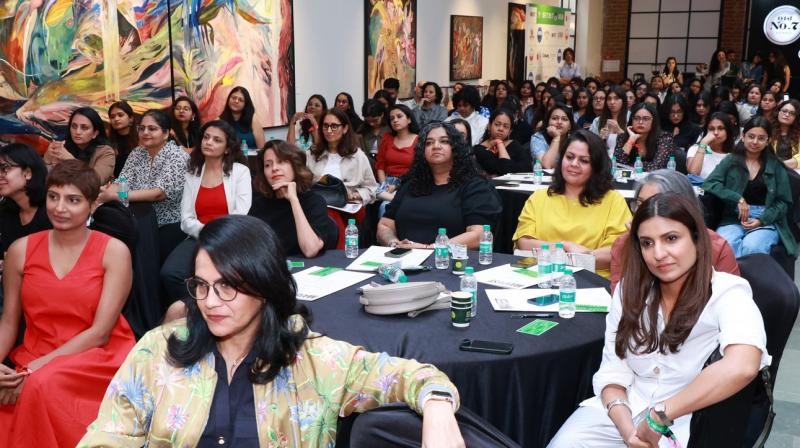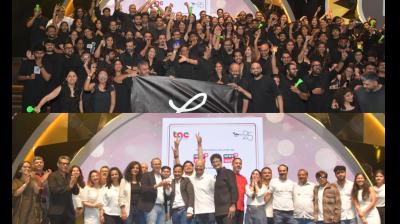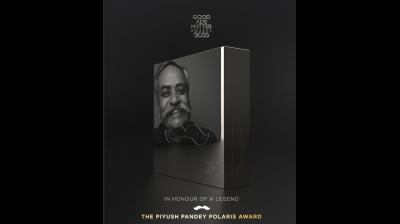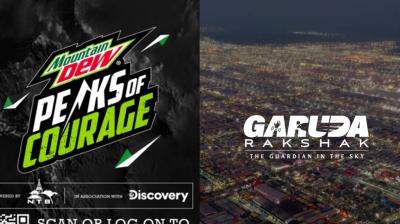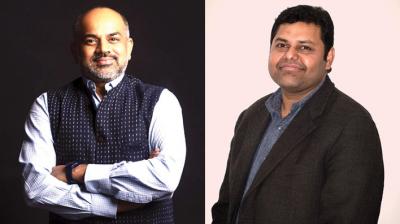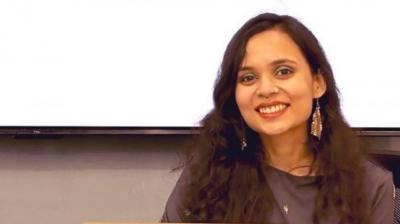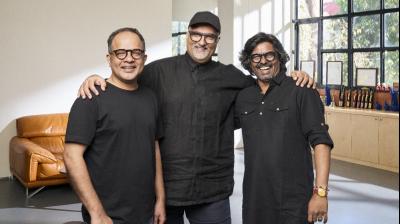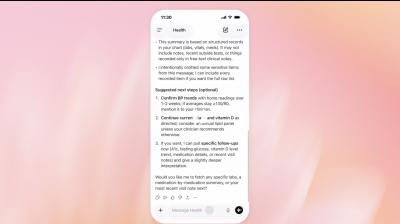The first edition of the Cannes Lions International Festival of Creativity's 'See It Be It' programme was hosted in Mumbai on 14 November in association with Snowball Studios, with partners First December Films, Kulfi Collective, Schbang and White Rivers Media. The F&B partners for the event were Amstel Grande, Kingfisher, Jack Daniel's, Nandan Coffee, and The Baker's Dozen.
Indian Creative Women (ICW) and Manifest partnered to execute this event.
Over the course of the day, there were three panel discussions, a fireside chat, and three keynote sessions. Here are some of the best quotes from the day:
Bringing your own seat to the table
Tista Sen, founder, Tista Thinks

On how appraisals should be approached: "I want one to change the way appraisals are done. Wear your brand business hat. What did you solve? How did you step in? Find out the impact on the brand because we are creative people, and we have to be interested in how our brand is doing. And not just the emotional, sacrificial part when it comes to a raise, but things like this are what I did, this is why the brand grew, and this is who I stepped in for, and this is what the client sent me. Collect those things because they are your little trophy badges, and use them during the appraisal time. The value one brings is what one does for the business. We are in advertising, we are selling shampoo and soap - it’s important to know how our work is performing."
On leadership: "Leadership does not know gender. A creative director doesn’t come with a gender. That’s why we all should change the way we think and the way we are. We will not be talking about female leaders, but we will be talking about just effing good leaders because that’s what we’re gonna be."
The art of leadership
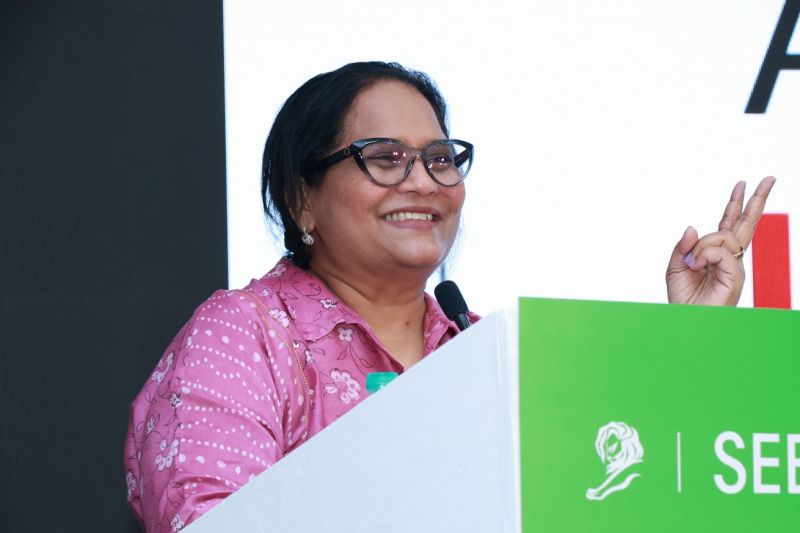
Hephzibah Pathak - executive chairperson, Ogilvy India: "There are many levels of competence. There is something called unconscious incompetence, like in children. They don’t know what to do, and they don’t know how to do it. For instance, they don’t know how to tie their shoelaces, so they’re unconsciously incompetent. Then there’s the next level: conscious incompetence, I know what I have to do, but I don’t yet know how to do it. Next, there is unconscious competence - that’s muscle memory, like driving to work. You’re unconsciously competent because you know how to do it. Often, you may drive to work and not even realise which route you took. And often, unconscious competence is ranked above conscious competence. But I reversed it, because I believe the magic of growth lies in ‘conscious competence.’ We have to be really mindful and very intentional to design the career we want. And I can tell you that you can do anything you want - what you need is to make a decision. For that, you need something called intentionality. There is no ‘try’; there is only ‘do’ or ‘do not.’ That’s intentionality. And if you have these, you can make anything happen. And I can tell you that my whole story is built around just those three things. That’s what conscious competence is."
Go Further, Faster: The Power of Personal Branding
Lulu Raghavan, president APAC, Landor
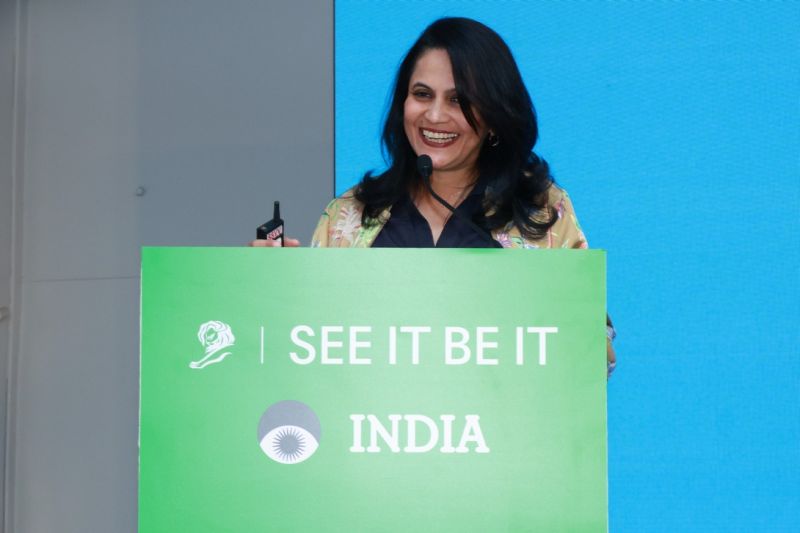
"I just read the ICW mission statement: ‘We believe women bring in a distinct perspective to connect to mass consumers, making the advertising and design industry more diverse, more creative, and more profitable.’ What I really loved was the idea of a ‘distinct perspective’. Can you articulate your distinct perspective? Because that is your personal brand. In many ways, it's your voice. It’s what you shine a light on through your unique point of view. Many of us are working on brands for our agencies. We're building our agency brands. Some of you here may be startup founders building your own brand. But the question I want to ask you today is: How much time have you actually spent on brand ‘you’? And does that even matter?
Here’s an uncomfortable truth for all the mighty talent in this room: Whether you like it or not, your personal brand is being built every single day by default. How many of you have career insurance? Without a personal brand, you are a trapeze artist without a safety net - you have no career insurance. Hopefully, that wakes you up to why you should invest in your personal brand. So ask yourselves: are you realising the full potential of your true worth?"
Saw it, was it: A See It Be It (SIBI) alum retrospective
Speakers: Harshada Menon, ECD, DDB Mudra; Manoti Jain, founding partner and COO, Kulfi Collective; Nivedita Agashe, GCD, Ogilvy, and Pooja Ambulkar, CD, Accenture GN Song. Moderator: Leena Gupta, creative and founding member, Talented
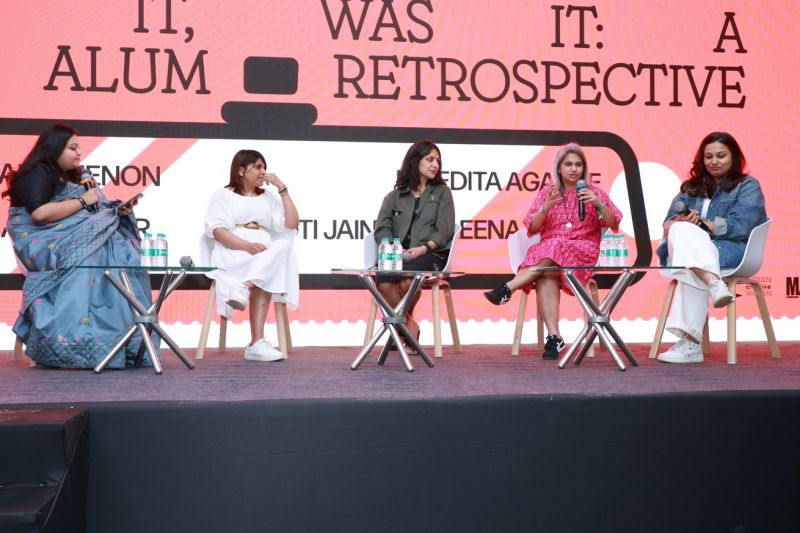
Manoti Jain on redefining leadership as a woman: “With our Indian conditioning, one grows up thinking leaders don’t cry, leaders don’t show emotion, and leaders are supposed to be invincible. I’m an emotional person, and I used to worry that made me weak, that people would look at me and think I wasn’t cut out for this. But at SIBI (in Cannes), I saw women cry openly, share vulnerability, and still own the room. In a fireside chat, someone simply said: Crying is not a weakness. That changed something in me. My team now knows exactly who I am, I’m emotional, I cry, and I’m still a solid leader. If you put in the work, people recognise you for your work, not your tears. You don’t need all the answers on day one. Take your time, learn, and grow. Be your truest self, even if that self cries. That was my inflection point.”
Pooja Ambulkar on vulnerable leadership: “Learning to own your vulnerabilities shouldn’t feel radical, but for most of us it does, because we’re taught to hide them. At the poolside chats at SIBI, something shifted for me. I watched CEOs and CCOs speak with complete honesty, showing sides of themselves they’d probably never show in a boardroom full of strangers. And instead of shrinking them, it made them feel more powerful, more real. All my life, I’d heard the same thing: don’t be ‘too much’, don’t be emotional, don’t be a ‘girl’ in advertising. But seeing leaders embrace their vulnerability made me realise you can be strong because of it.”
Nivedita Agashe on SIBI expanding her worldview: “Our cohort at SIBI had women from across countries, and the conversations went far beyond work; we were talking about the pink tax, objectification, representation, even Cindy Gallop’s MakeLoveNotPorn. At 24 or 25, taking all of that in was overwhelming in the best way. It showed me how much bigger the landscape is, how much is stacked against women, and how powerful it is when we name it together. And what stays with me even now is the sisterhood we built; our WhatsApp group has been alive for a decade, sharing life updates and lifting each other up. That community has taught me as much about the world, and about women, as the program itself.”
Harshada Menon on reframing power as abundance, not competition: “Madonna Badger (chairperson and ambassador for Cannes Lions' See It Be It mentorship initiative and also the founder, CEO, and COO, Badger Agency), said something that has stayed with me ever since: power isn’t scarce, it’s infinite. We’ve just been conditioned to believe there’s only one seat for one woman in every room. SIBI shattered that myth for me. There’s space for all of us, and the real work is taking more women along with you. That’s what a community looks like. That’s what real power looks like. You need your girls, you need them at home, at work and everywhere else."
How to be a CCO and lead with your heart?
Panelists: Kainaz Karmakar, CCO, Ogilvy India, Swati Bhattacharya, head, Lightbox Creative Lab, Sonal Chhajerh, NCD, Leo India, Shagun Seda, head - brand strategy and marcom - sports and Live Experiences, JioStar
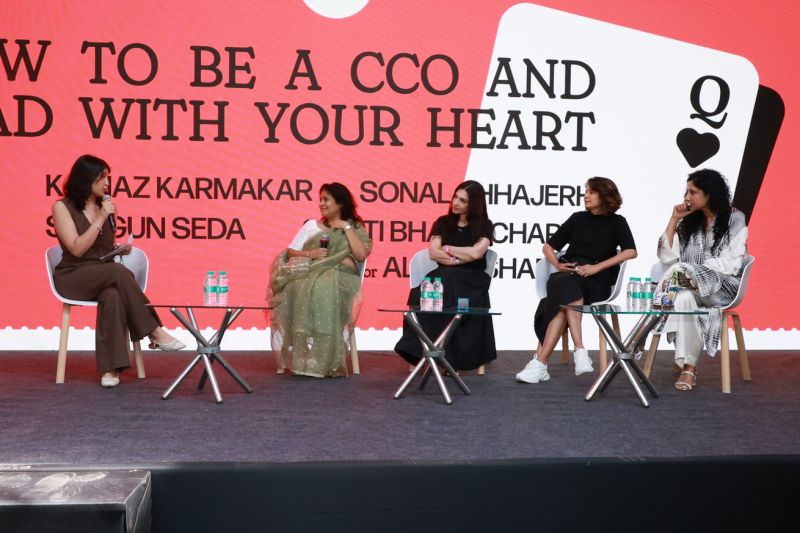
Swati Bhattacharya on the industry losing women leaders: “We are losing women to motherhood. We are losing women because organisations still haven't got their act together on how to support. They need to understand that if you stand by someone, just for that one or two years, you will get so much more from the person.”
Kainaz Karmaka on being authentic: “Vulnerability and authority can easily go together because people want you to be yourself. They love you more when you’re yourself. If being your true self is coming in the way of your progress, then you are with the wrong people. People are only going to follow you more and champion you more if they know that they can get the truth from you."
Sonal Chhajerh on ‘female insights’: “The one thing that gets me every time is when people talk about the female insight. We are like half the population, and we are still talking about female insight as if we are a minority. That narrative needs to change, and it will only change when we have more women.”
Shagun Seda on being curious: "Leading with one’s heart is gender blind. We have grown up seeing leadership as only one sort of adjective, which is very masculine. I've been a leader for more than a decade now, and I feel, as you start taking on larger teams, larger mandates, leadership is not just about how you lead a team, but it's also about how you lead your peers. It’s also how you show up as a leader, even with your managers. Having worked in very matrixed organisations, I realised that leading with your heart is all about leading with connection. It's not just about having that clarity and that vision, but about being curious. It's also about being vulnerable and having a spectrum or emotional agility to power up and power down, depending on the kind of rooms that you are in."
From Allyship to Action: The role of male leaders
Speakers: Ashish Khazanchi, founder and CCO, Enormous; Harshad Rajadhyaksha, CCO, Ogilvy India; Josy Paul chairperson and CCO, BBDO India; P.G. Aditiya, founder and chief creative officer, Talented; Rahul Mathew, chief creative officer, DDB Mudra Group. Moderated by: Tista Sen, founder, Tista Thinks.
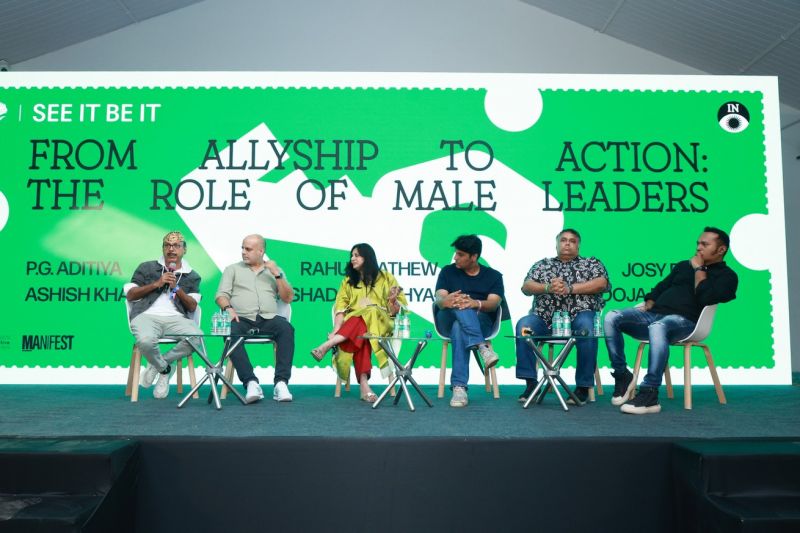
Harshad Rajadhyaksha on the importance of bringing in policies to support women: Ogilvy is vast, so size becomes a vital consideration. But despite that, organically, great work has always been championed, irrespective of what the source was. As we have moved to the current times, we are also taking conscious meetings and looking at how our groups are composed. Luckily for us, in this room itself, we have seen two leaders who not just Ogilvy, but our industry admires in the form of Hephzibah and Kainaz. My existence as a creative person is absolutely fused with and incomplete without Kainaz. So yes, the intent is there, and it comes to the fore on days like these, but I feel it's important for us. And the job has just started. A lot of women are doing professional suicide without asking for help. So it's important for keeping this front and center practically every day, like we keep our campaigns at work important, like a job to be done. Bringing in this balance is a job to be done. We have steps in play in our organisation, and we have to facilitate that.
Josy Paul on assumptions regarding gender when it comes to creativity, which he had to unlearn: I realised that Darwin missed something, because in the evolution chart after the man, there should have been a woman. As I think in evolution, a woman is far ahead of the man, and that is what I learnt as I worked with women like Ritu Sharda, Swati (Bhattacharya), and the incredible young women in our agency. And I don’t understand the word ‘mentorship’ – I don’t know how to place that – I only understand partnership. I don’t have any power. Because for me, I am learning, and we are all learning together. It’s just that sense of doing this together, so this word mentor I’ve unlearnt; for me it's partnership- regardless of your age or gender or wherever you’ve come from. That’s what I believe in.
On the alarming statistic that just 10% of creative leadership in the industry comprises women — and why more women want to leave the industry.
Rahul Mathew: I think the honest answer is we are still not an industry where it feels like a comfortable place for women to be in. I’ll be honest, there’s a lot of learning and unlearning we all have to do. We’ve to understand that if we really want more women to succeed in their role as a creative leader, we also have to help them succeed at the other roles in their lives. And if we don’t do that then this will feel like something that’s heavy on them. And that’s why this becomes the easiest role to drop because probably those other roles are something which they don’t ever want to be seen as lesser in. So, there’s a rewiring of agencies that is needed, there’s a rewiring of how we look at things that is needed. For that, the industry has to first openly acknowledge the difference that’s being made by women - that it’s huge. And hence it’s not just a nice thing to do, but very critical that we do it.
Ashish Khazanchi: What we’ve done as an agency is leave the glass ceilings out of the room. We understand there may be systemic biases against women, maybe not for coming into the industry but for staying on. So, we’ve taken care that it stays a place that women won’t just come in but will enjoy it and thrive as much as anybody else.
PG Aditiya on what women can do to achieve equality at the workplace and equal parental leave: Don’t stop at (achieving) equality - go the whole route. Equality is a mythical land- take the whole f**ing thing, it's your industry. We’ll get to equality if you want superiority. Just one more point on the biological part - equal parental leave is a very real policy – both genders can have the same shitty experience in their careers once they become parents. It need not be just what one of the genders only suffers from. In various markets across the world where equal parental leave has been implemented, both men and women go off work once they have kids; therefore, both genders worry about what will happen to their careers, which makes it a universal problem. So yeah, as a colleague of mine pointed out: If we make it a guy’s problem, it will get solved!
Between heart and hustle — the balance of purposeful leadership
Speaker: Felicity Fellows, TED global ambassador, co-founder and chief strategy officer, Stan Group, and founder Stan Paris
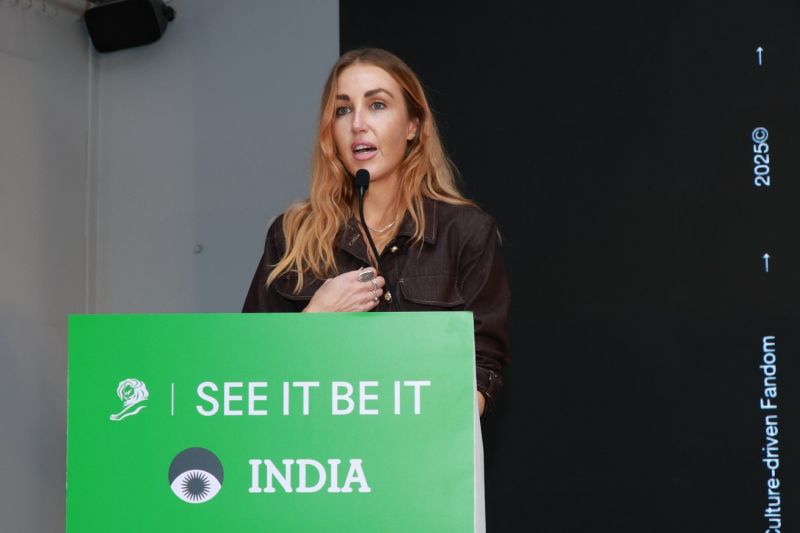
On the emotional cost of hustle and the value of women’s leadership: “In a world obsessed with hustle and productivity, we lose sight of what actually matters: beauty, meaning, integrity. I can’t perform my way through leadership anymore. AI will change everything, but it will also make emotional intelligence, wisdom, and the way women connect even more valuable. What remains irreplaceable is how we see each other, feel for each other, and build spaces where people can belong.”
On women’s intuition, nervous system literacy, and becoming ‘dangerous women’: “I’ve been learning about the biology of intuition. What we often call calm is sometimes just shutting your dorsal vagal system, preparing you to disappear. True regulation is flexibility. It’s being furious and still clear, heartbroken and still present, terrified and still courageous. Women who can stay in their bodies through that activation are hard to gaslight, hard to manipulate, hard to silence. They trust their bodies’ signals over other people’s comfort. These are dangerous women in the best way.”
On heart, hustle, and how women change leadership: “Real leadership is knowing when to pause, reorient, and rebuild even when momentum feels intoxicating. Women don’t just change rooms; they change the rhythm of the room. And the future belongs to those who can move between heart and hustle without losing themselves. I want a world where our daughters aren’t called ‘female leaders.’ I want them to simply be powerful leaders.”
The fundamentals of starting up
Pallavi Chakravarti, founder and CCO, Fundamental
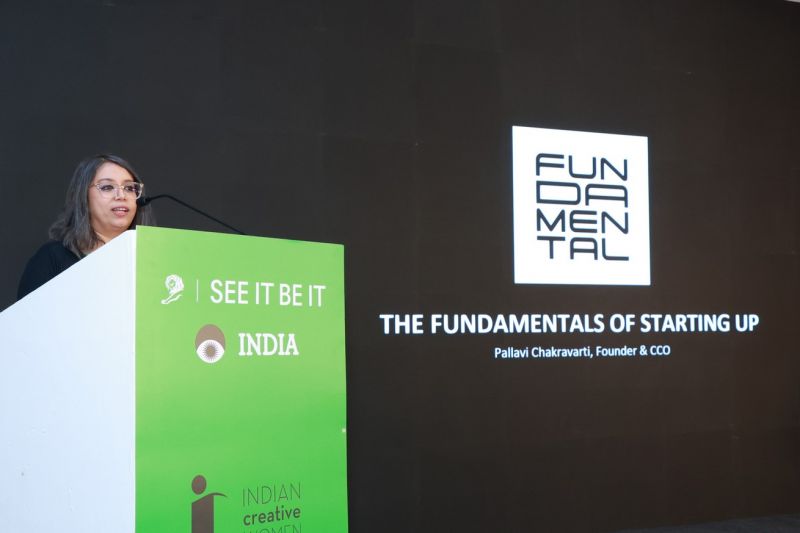
On having USPs: "Don’t be afraid to specialise. If one is going independent, no one is coming to you for a one-stop shop. Nobody is coming to you because your agency can do everything in the world. People should be coming to you because there is something that you are doing that nobody else can do. If one thinks, one can find that narrative for oneself, one has a sure shot win. Don’t lose sleep about the fact that hum yeh nahi karte. Have a USP and stay with it because over time, when you build a body of work, it’s gonna show and people will know why they are knocking on your door."
On finding one’s worth: "Know your worth. This is a huge problem in our industry. We don’t know our worth anymore. We don’t know what we’re bringing to the table. We are allowing people to sell themselves short, and this is not a long-term plan. Know what you’re charging for and why you are charging for it, and stay the course. If there are people who look at you and say we will find someone cheaper - don’t worry about it. There will be somebody who will see what you’re bringing to the table, and who will be willing to pay the price that you are going to need to pay your people. You can’t be creative or strategic on an empty stomach."
That’s what she directed
Fireside chat with Alankrita Shrivastava, Indian screenwriter, director and producer, in conversation with Kopal Naithani, founder, Superfly Films
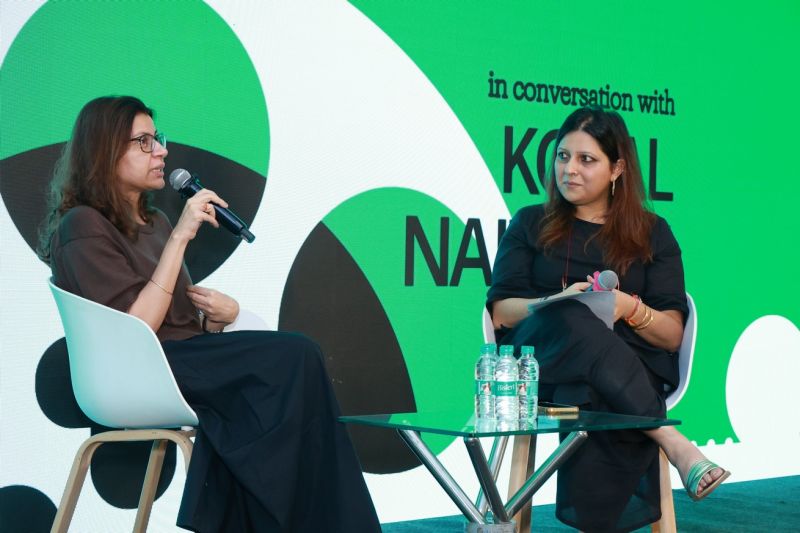
On systemic barriers: “For decades, cinema worldwide has been shaped almost entirely by men: the stories, the gaze, the economics, the power. Audiences were trained to pay to watch the male hero, which means women-led films were never given the same weight. Changing that isn’t easy; we have to dismantle a system built over generations.”
On representation and the male gaze: “The way women have been portrayed on screen, the tropes, the objectification, even rape used as a thrill element, is the direct result of women not being behind the camera. Women haven’t been seen as full human beings on screen because they weren’t treated as full human beings behind the camera either."On finding your voice: “We’re taught very early to shrink our voice, to question it. In a creative field, that instinct is deadly. Your voice is the thing. It takes courage to trust it and put it out into the world, but it’s worth it. Our perspectives are valuable even if we weren’t socialised to believe that.”


